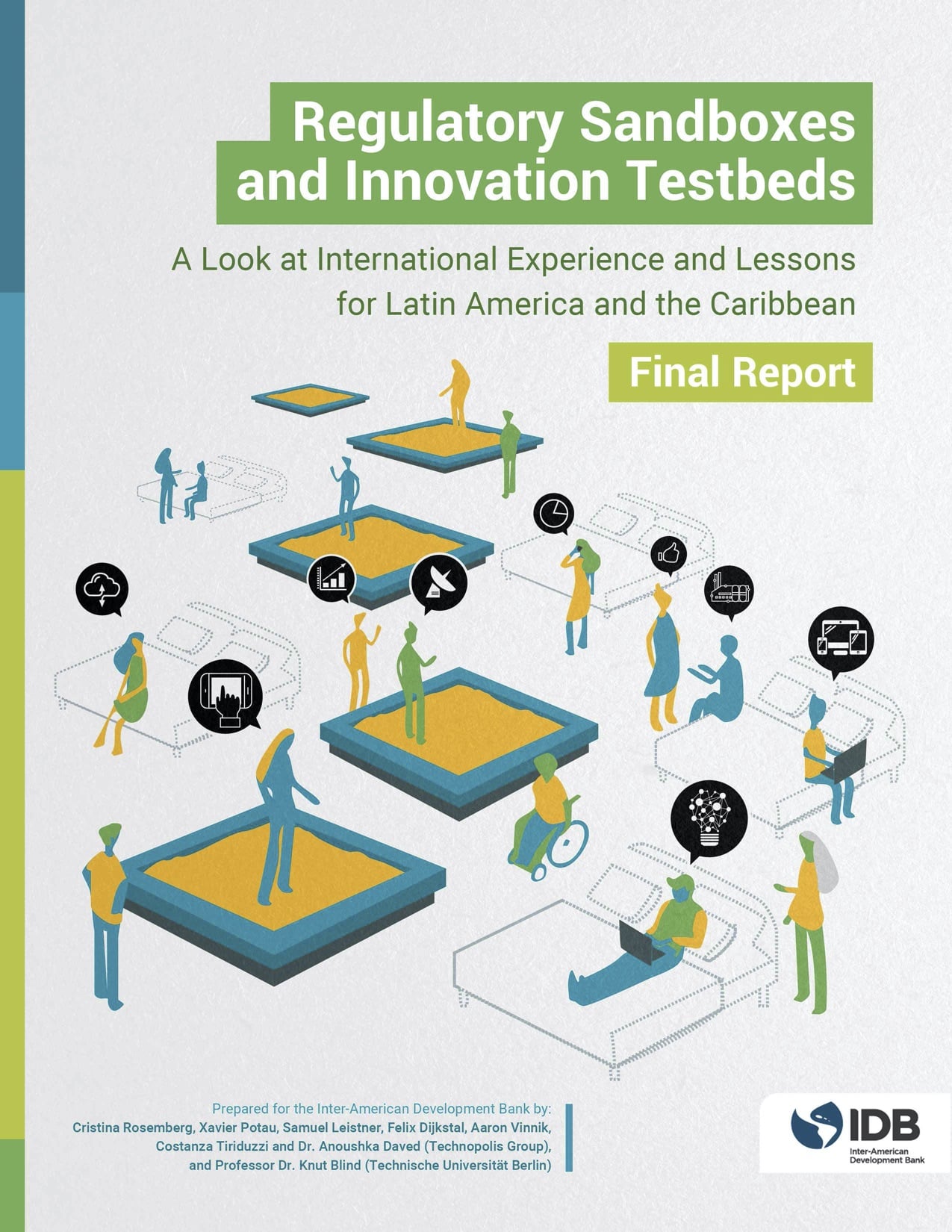Regulatory Sandboxes and Innovation Testbeds: A Look at International Experience and Lessons for Latin America and the Caribbean
Publication date: 1 september 2020 | Report language: EN
Regulation can pose a barrier to innovation when it is unnecessarily burdensome or slow to adapt, but it can also act as a driver of innovation by providing important preconditions such as general frameworks for finance and funding, bankruptcy regulations, intellectual property rights (IPRs), and ground rules for competition and consumer protection.
The ‘pacing problem’ faced by regulation -its ability to remain relevant in the face of technological advances- has never been more prevalent due to the nature and speed of transformation of digital innovation. Regulators can opt to play a more active role in nurturing and supporting innovation by exploring the application of regulatory sandboxes and innovation testbeds as mechanisms to enable emerging innovations in sectors that were traditionally heavily regulated, such as telecommunications, health, and energy.
The study is based on an in-depth analysis of seven international case studies in the UK, Finland, the Netherlands, and Argentina. It explores the application of regulatory sandboxes and innovation testbeds as mechanisms either driven by, or developed with, the support of regulators, identifying key aspects of their implementation, governance, support mechanisms, and impact.
The study draws some important lessons for Latin America, showing how agile and experimental approaches to regulation could be considered as part of the innovation policy mix, and how innovation agencies can play a fundamental role in implementing those types of initiatives.
For more information contact Cristina Rosemberg.



